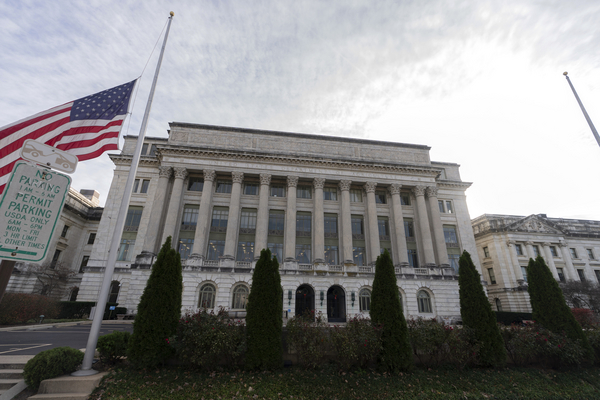The recent decision by the Trump administration to terminate the Food for Peace program is not just a policy shift; it"s a brutal assault on global food security and the livelihoods of American farmers, especially in Kansas. This program, birthed from the agricultural surplus of the 1950s, has historically served as a lifeline to over four billion people in 150 countries. Now, it faces a death sentence, a move that could exacerbate hunger worldwide and deepen the economic crisis for farmers in the heart of America.
Food for Peace Program Faces Demise
Originally established under President Dwight D. Eisenhower, Food for Peace was designed to tackle surplus production while providing critical humanitarian aid. As reported by the Dole Archives, this program has been a cornerstone of U.S. foreign aid, utilizing American agricultural bounty to combat hunger abroad. The drastic cuts proposed for 2026 threaten not only this vital program but also the McGovern-Dole International Food for Education and Child Nutrition program, both of which are essential for addressing food insecurity.
Kansas Farmers Hit Hard by Policy Changes
Kansas farmers, who overwhelmingly supported Trump in the last election, are now facing the consequences of his administration’s shortsighted policies. Agriculture accounts for nearly half of Kansas’s economy, and with the recent cuts, farmers are left with overflowing silos and dwindling markets. As noted by Purdue University, food inflation perceptions vary significantly across political lines, but it is the farmers who are paying the price for these political games.
\n\n
Kassel, Germany, January 10, 2024, farmers" protests: Rally ...
Global Hunger Crisis Amplified
The termination of Food for Peace is likely to exacerbate the global hunger crisis, a situation that was already dire before this decision. According to the USDA, the program has provided much-needed food assistance to those in desperate need, fostering international trade relationships while also promoting U.S. interests abroad. By cutting this support, the administration is not only abandoning our moral duty to combat hunger but also jeopardizing U.S. global standing.
Economic Implications for Farmers and Communities
As grain brokers pivot to selling Kansas wheat for pet food, the implications of these policy changes ripple through local economies. Farmers are already struggling with volatile crop prices, and the lack of international buyers will further destabilize their livelihoods. The Trump administration’s claims of inefficiency ring hollow when you consider the profound impact on communities that depend on agriculture. The economic fallout from these cuts could lead to increased poverty and food insecurity not only abroad but right here at home.
\n\n
Around 12K take USDA buyout as mass firings loom - E&E News ...
Call for Progressive Solutions
The dismantling of Food for Peace highlights the urgent need for a shift in our agricultural and foreign aid policies. Progressive leaders must rally together to propose comprehensive reforms that address both domestic agricultural needs and international hunger. This includes re-evaluating the effectiveness of U.S. agricultural subsidies and advocating for policies that support sustainable farming practices while ensuring that surplus food is used to aid those in need.







![[Video] Gunfire between Iraqi security forces and Sadr militias in Baghdad](/_next/image?url=%2Fapi%2Fimage%2Fthumbnails%2Fthumbnail-1768343508874-4redb-thumbnail.jpg&w=3840&q=75)
